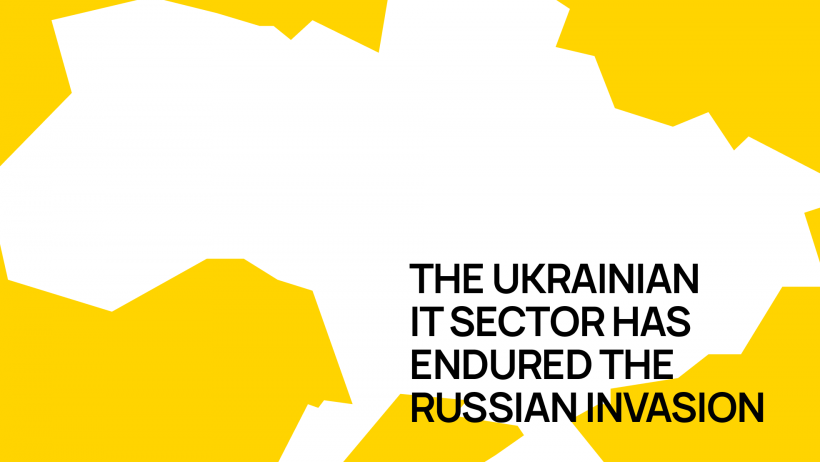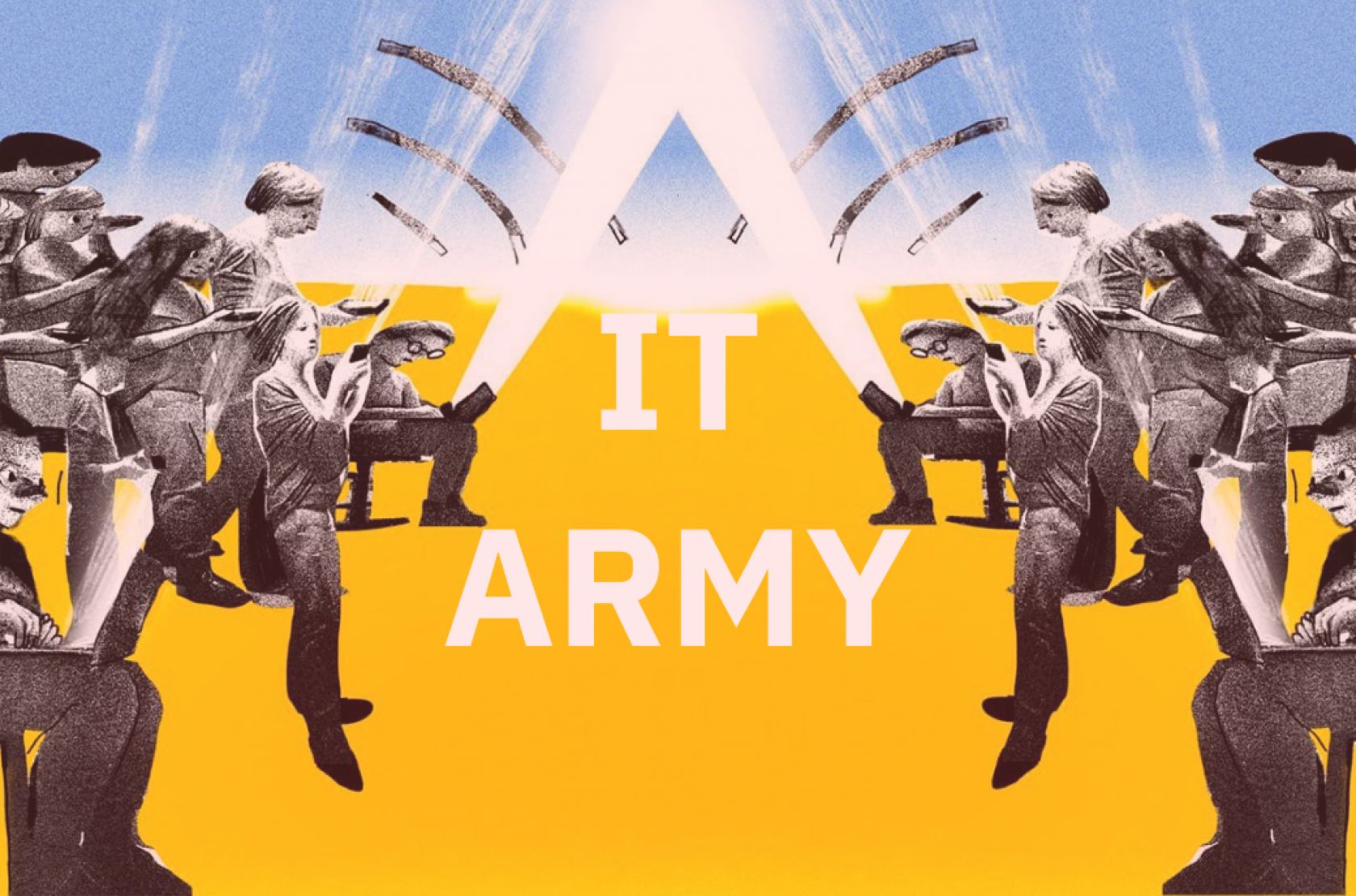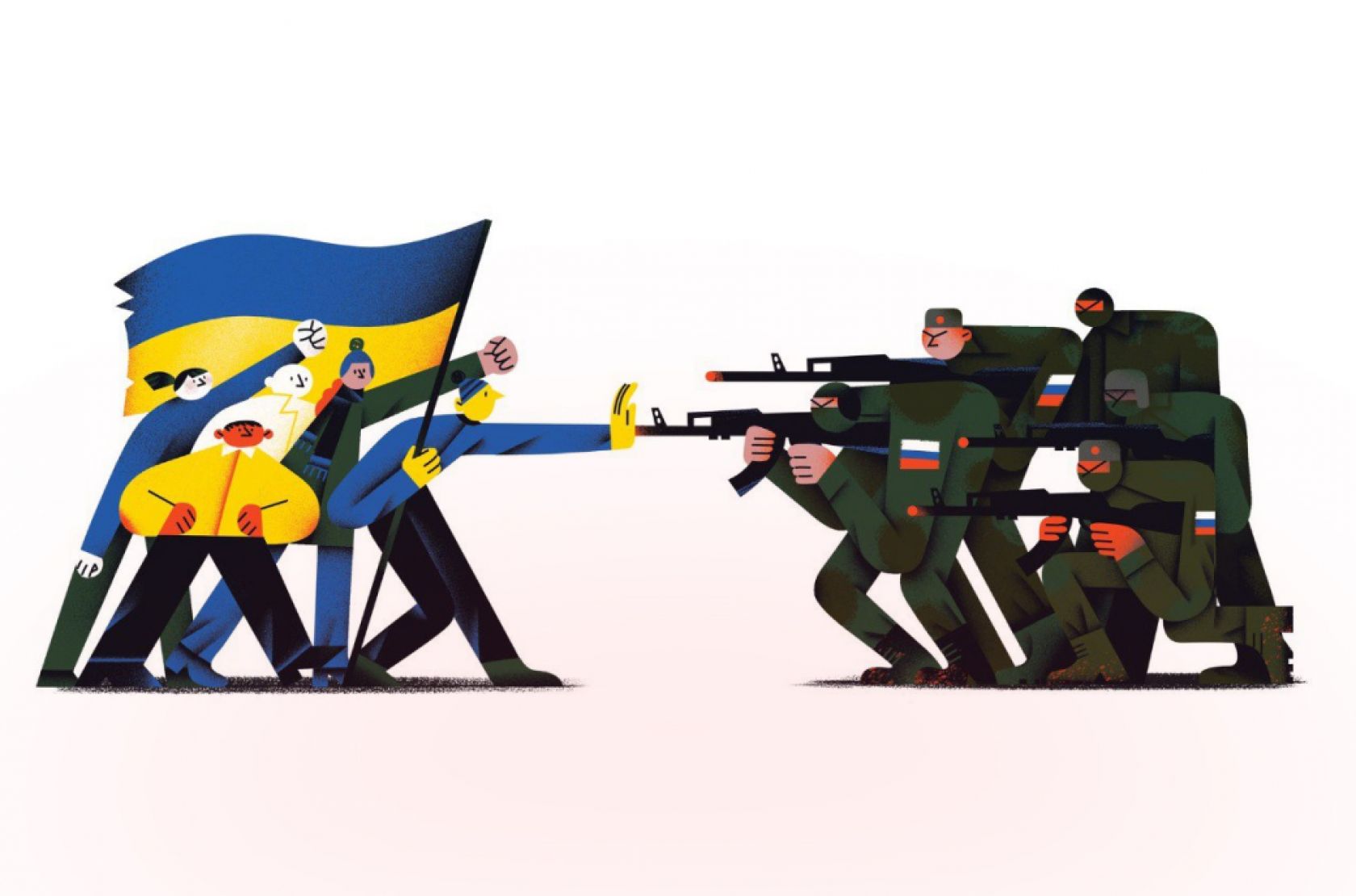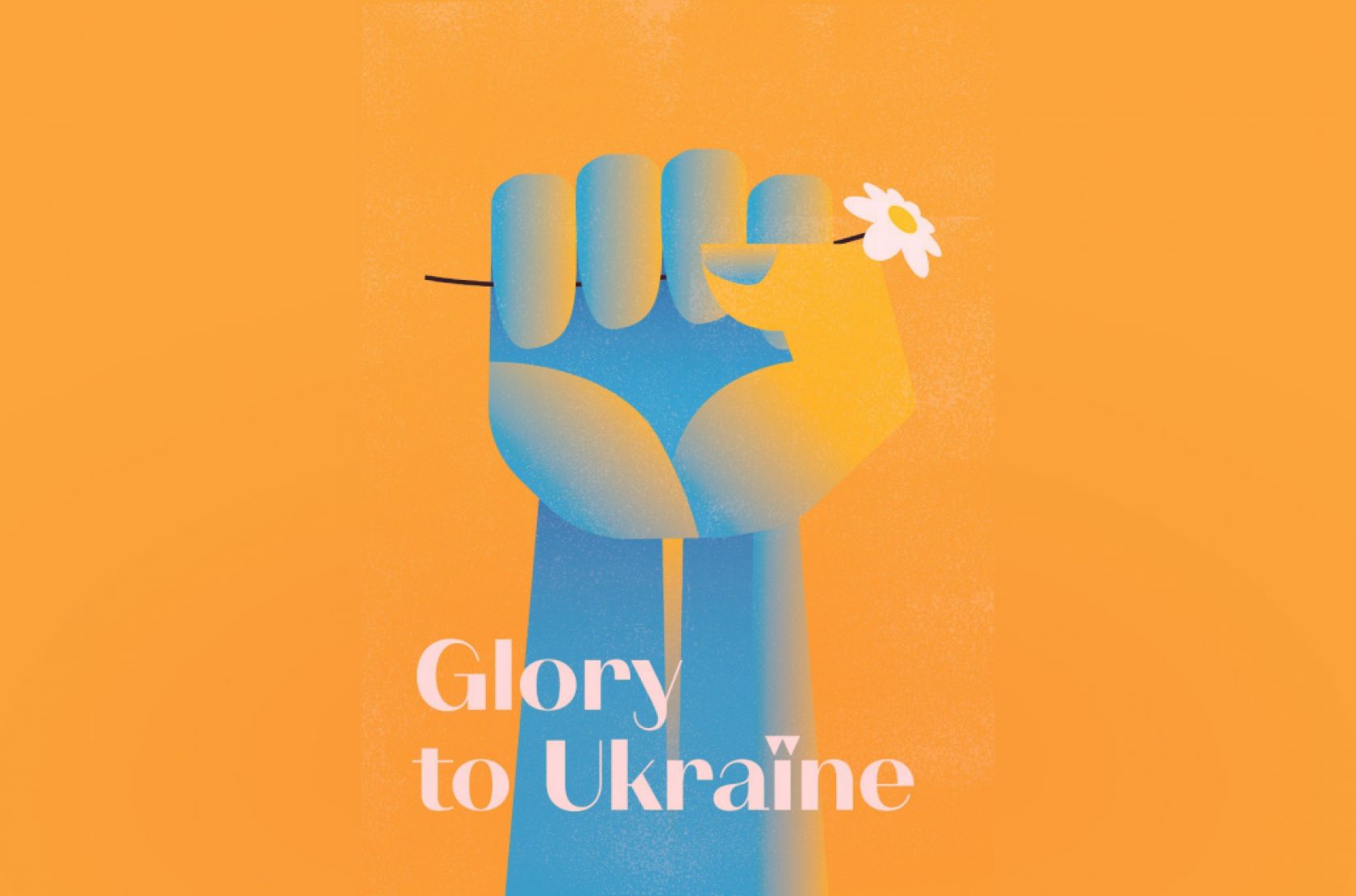Ukraine is bleeding under the rain of Putin's bombs. Right now, civilians in Kharkov, Kyiv, Chernigov, Mariupol are dying from bomb volleys and air raids. This is not only a criminal offense against humanity and a humanitarian crisis in the center of Europe, but invasion by Russian troops also destroys Ukrainian industry and the entire Eastern European IT cluster.
The war has raised the question of the subsequent development of Ukrainian IT, which had built a distinguished reputation and taken it’s place as a key player in global commerce. Here are a few statistics:
- Every fifth company from the Fortune 500 list provides services of Ukrainian outsourcers. Among them are Microsoft, Google, Samsung, Oracle and many others;
- In 2021, Ukrainian IT grew by 36%, exported services worth $6.8 billion;
- The export of IT services in Ukraine is growing annually by an average of 27%.
Ukrainian organizations have been working successfully with Western clients for years. Now, with the collapse of the national economy, the unpredictability of war and difficulties with the market presence of this sector, this fruitful association is suffering a terrible blow. This very day, Ukrainian developers had to literally rescue themselves and their loved ones when a Russian assault interrupted a meeting.
But this does not mean that Ukrainian IT is slacking. Even in such terrible conditions, specialists continue to work and entrepreneurs give their best: keeping their teams and businesses afloat.
History of success
Thus far, the Ukrainian IT sector has been a shining light in the Ukrainian economy. While the country was troubled by all sorts of crises, this sector was growing steadily, creating jobs and attracting hundreds of millions of dollars of foreign investment. Even in 2020, when Ukraine's GDP registers at 4.4%, revenue from IT services outsourcing grew by more than 20%.
Ukrainian startups raised more than $1.68 billion in investments in 2021, according to Forbes, more than the dollar record of 2020, where closer to $571 million was raised.
Ukrainian enterprises began to outsource clients to Europe and the USA. Over time, the first Ukrainian “unicorns” (privately owned startups worth more than $1 billion) appeared, and then “decacorns” with a capitalization of more than 10 billion (GitLab, Grammarly). According to the IT-Ukraine Association, there are about 5,000 IT companies in the country today, with 285,000 people employed in the industry. What’s more, tens of thousands of Ukrainian specialists work freelance or work remotely for USA-based and European companies.
One of the main problems of the Ukrainian IT sector has been and remains Russian aggression. In 2014, the annexation of Crimea and the incitement of violence in the Donbas reqion sparked the first wave of emigration of specialists and companies. But when the situation stabilized many quickly returned home.
At the beginning of 2022, the disturbing news about the assembly of Russian troops on the borders of Ukraine caused great concern. Many employers, especially those with their main offices abroad, began to evacuate their Ukrainian divisions as early as mid-February.
But this was not considered an option by many who were born and raised in Ukraine, they chose to rely on their competence and capabilities.
War
Ukraine saw the pinnacle of Russian aggression with the February invasion by Russian troops. Ukrainian businessmen continue to be faced with uncertainty and the threat of wartime. As the number of Russian deployments increases, the offices of Ukrainian companies disaappear physically or fall into enemy hands.
An illustrative example is Kharkiv, the second most populated city in Ukraine. Before this war, the metropolis was known as the Ukrainian silicon valley; a thriving IT sector has grown there. At the beginning of this year, more than 500 specialized companies worked in Kharkiv.
Today, the Russians are literally wiping Kharkiv off the face of the earth - shelling and air raids have devastated the city center and dozens of residential areas. Even if the war ended tomorrow, it would still take years to restore what has been lost. A different situation occurred, though, in Kherson, which was occupied by the Russian army in the first days of the invasion.
An Occupation
“7 days ago I woke up from a call and the words: Do you already know? Russia attacked us, we are at war,” recalls Diana, a resident of Ukrainian Kherson. Kherson is a small city in southern Ukraine, which cannot exactly boast of the same business activity of Kharkov or Kyiv. Nevertheless, there was a legitimate company, WEZOM, which in 22 years went from a small web studio to a large IT holding with offices in four countries.
Diana has built a successful career in WEZOM and, until recently, she lived with her own plans and ambitions. When war broke out and with the occupation of Kherson, survival became her main concern.
“For two days it was impossible to go outside Kherson at all. They humiliated people, killed, destroyed a large shopping center…. At night, they killed people who drove cars around the city. Yesterday they shot at residential buildings, at a school, etc. We do not give up. We just wait and believe in Ukraine,” Diana proclaimed. Like thousands of Ukrainians, she believes that the occupation is temporary, and soon her hometown will be liberated by the Armed Forces of Ukraine [BCY].
Tens of thousands of Ukrainian specialists found themselves in a similar situation. Everyone experiences the trauma of war in their own way: someone escapes from it by going far from home, another joins volunteering and cyber warfare efforts against the Russian Federation, somebody else joins the Armed Forces of Ukraine or the territorial defenses to retaliate against the aggressor. And with all this going on, Ukrainian teams continue to work on projects in order to fulfill their obligations to partners, keep the country's economy afloat, and keep the business going no matter what.
“There is no force majeure. At the moment the situation could be much worse. We have not laid anyone, off and we are not going to. Everyone in our company is alive, and this is the most important thing,” said Sergey Guzenko, CEO of WEZOM. According to him, the team carries on working on about two dozen projects.
The war definitely threw the WEZOM processes into chaos for a while. In the early days of the invasion, it was important to make sure that all employees were alive and safe. Although the main office is located in Kherson, a significant part of the team is scattered throughout the country and works remotely. Several employees were forced to flee from Kharkov whilst some remain besieged in Kyiv. There are also employees who do not leave their homes due to the proximity of hostilities.
“We have a man who lives in a village near Kherson, where there is constant conflict. He has set up a workplace for himself right in the basement with the internet extended for the necessary reach. It's just a basement, two by four meters, there's a bit of everything – from different kinds of mattresses to jars of food. And there is now also computer where a person works.His wife and two children sit next to him,” says the head of WEZOM.
Kherson has been under occupation for about two weeks now. Although the Ukrainian administration remains in the city, residents have faced at least two attempts to completely block communications, and foreign military and equipment are moving around the streets. There is a curfew in Kherson, any attempts to leave the city and cross the front line are considered suicide. Local residents and businessmen put up with this new reality. They do everything they can to maintain their normal lives - work, volunteer, help those in need. At the same time, Kherson refuses to accept it’s situation. Despite the danger, large-scale pro-Ukrainian rallies gather in the city center every day. The Russian troops are well aware that the people of Kherson are not happy with them.
What About in Russia?
Ukrainian IT-entrepreneurs are known far beyond the borders of their native country; until recently, their word had weight in Russian business circles as well. The first reaction of the Ukrainian digital community was an attempt to reach out to their Russian colleagues, to open their eyes to the horror of what was happening. The denotative appeal of Ukrainian businessmen was published on March 8:
https://www.youtube.com/watch?v=WB5FaRGymvY
In fact, it is not simple at all. Today, Russians are divided and intimidated by their own totalitarian regime. Some try to ignore the sanctions and the war, some sincerely believe Putin and support his bloody “war efforts”. Dissenters who go to anti-war rallies throughout Russia are severely punished. Ukrainian developers are faced with misunderstanding their colleagues from the Russian Federation. Not so long ago, Kharkiv IT specialist Dmitry Galitsyn, who worked for a Russian company, was removed from a work chat for calling on colleagues to go to rallies against the war.
In the end, the Russian inhabitants simply refuse to believe in what is actually happening.
“In the first days of the war, our people were in all sorts of chat rooms, trying to convince the people of Russia that this was really happening, but it was quite difficult. For example, even my coach said that his friend lives in Moscow, and he talked to him for 5 hours, showed all the videos himself and did not convince him that Russia attacked us. I believe that if you live in Russia and you are doing more or less well, then it is very difficult for you to believe that your country attacked a neighboring state where you may even have relatives. It’s easier for a person not to believe and find excuses for why it’s not true,” said Sergey Guzenko, CEO of WEZOM.
The war against Ukraine brought down an avalanche of sanctions on the Russian Federation, which targeted the technological and financial sectors. The Russian regime, in turn, opted for complete isolation from the global Internet, banning Facebook and Instagram in the country. Russian infrastructure has been technically preparing for such isolation for more than a year. Western clients, if possible, stopped working with Russian outsourcers. All this puts the Russian IT sector in a fight for survival in the mid-term.
“The Russian cluster may lose the physical ability to work. And if by some miracle they can work, then it is not clear how they will receive money for this, because Mastercard has been blocked and so on. The developer, of course, can receive cryptocurrencies, and then somehow change them to a card through an exchange, and only then withdraw and try to spend them. In short, I think that IT in Russia is coming to an anticlimactic end. Or a big crash, they're all going to have a really hard time. And given that the whole world is set against them, it is not clear where they will go in order to carry out activities somewhere in other countries,” Sergei Guzenko comments on the situation.
Hope for the Future
Based on the outlook after two weeks of the war, it can be said that the Ukrainian IT sector has withstood the initial shock and is coming out of its stupor. The developers have completed the relocation from the front-line regions and settled in new places. Also, the digital domain has once again become a currency outlet for the Ukrainian economy, because its ‘real-life’ sector is now simply incapacitated. Ukrainian telecommunications have also withstood, as even in the front-line zones the Internet is quite stable. By the way, Elon Musk supplies Starlink terminals to Ukraine - they are used by city authorities and the military.
According to a Highload survey, today almost 75% of Ukrainian specialists work at least partially. More than half of them complete work tasks in full.
Meanwhile, Mikhail Fedorov, the Ukrainian Minister of Digital Transformation, officially proposed not to recruit IT specialists to the Armed Forces of Ukraine because “they are fighting in cyberspace” and performing important defense tasks in the digital realm (from cyber-attacks to information campaigns).
In the realities of the war, Ukrainian specialists demonstrate solidarity and composure.
“You have to do what you can. I there is an opportunity to come to the office - we come. If there is an opportunity to work - we work. When there is an opportunity to start projects - we start. When we get money, we pay taxes with this money, we pay salaries, people go to withdraw this money and buy food, this turnover of funds is crucial. Now we have to just give it our all. We do not have the concept of a weekend anymore, March 8, Saturday, Sunday - we just have a day and a lot of work to be done, ”explains Sergey Guzenko.
During the war, the minimum daily work time at WEZOM was reduced to 6 hours. Employees combine their main work with volunteering, helping the Armed Forces of Ukraine, participating in cyber warfare and with any help to the communities around them.
The Ukrainian IT industry survived, and after the war it will at least not have to be restored from scratch. Ukrainian developers continue to contribute to the development of the global digital industry, even when “liberation” bombs are dropping on their heads. These people do not need sympathy or compassion, only stable working conditions, new projects and new clients. The victory of the Ukrainian people over the invaders depends, among other things, on their steadfastness, their professionalism, their faith in themselves and in Ukraine. As they say: the best revenge is living well.



